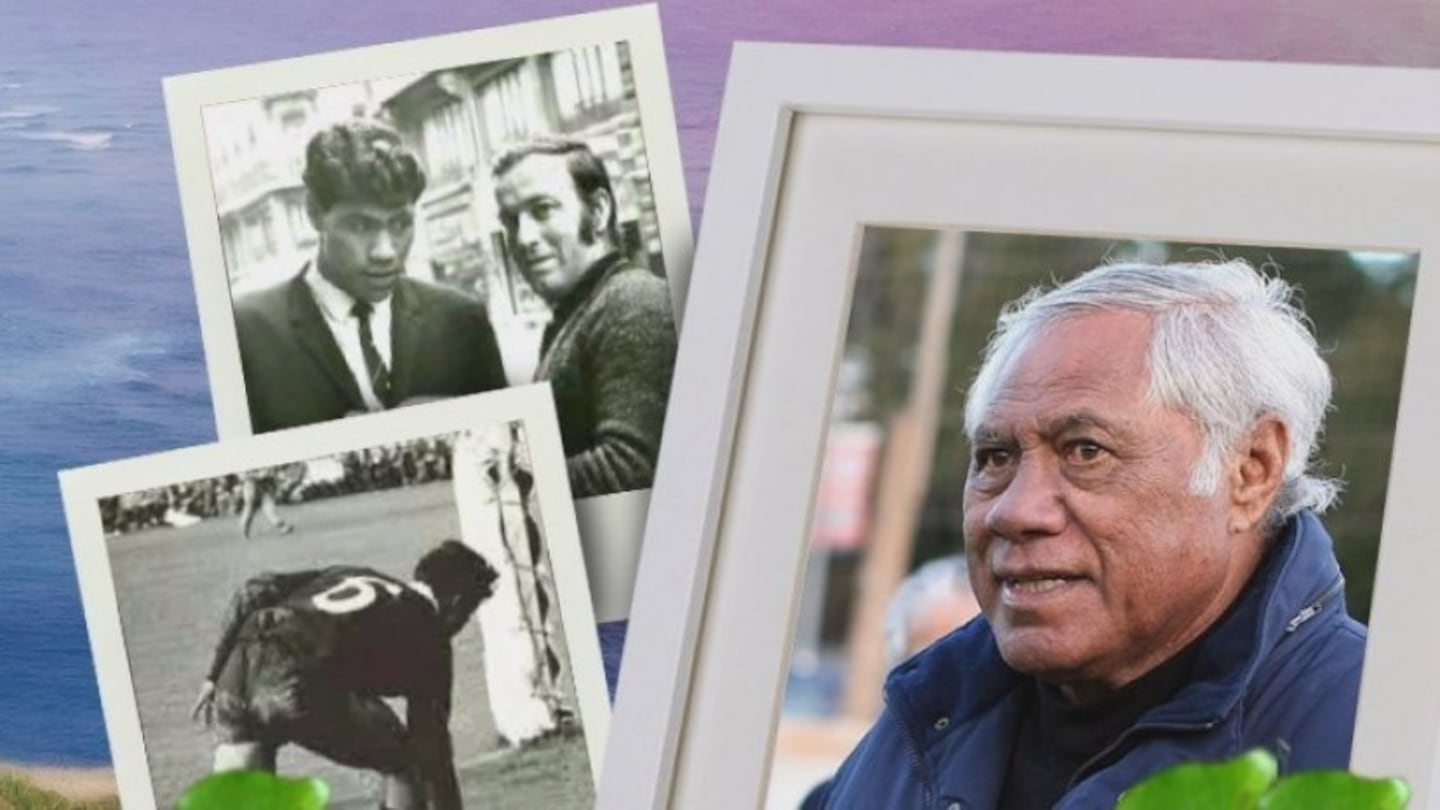Former broadcaster and Māori Development Minister Willie Jackson has paid tribute to one of the rockstars of world rugby of the 1960s, Waka Joseph Nathan, who died this week at the age of 81.
A key member of the Auckland team during its then record-breaking 1959-63 Ranfurly Shield tenure, Waka was born on July 8, 1940, in Ōtāhuhu, Auckland. The son of Samuel Taia Nathan and Irene Huakore, Waka's tribal affiliations are Tainui and Ngāpuhi.
Jackson remembers him fondly, including the famous All Black sides that Waka was involved in.
"So, I was too young to have watched him play but I read all about him, because I'm a rugby nut as you know, and I have seen all the old footage. He was involved in one of the greatest teams in the history of All Black rugby."
His All Black debut came on the 1962 tour of Australia where he appeared in both tests, and in all three when the Wallabies returned the visit later that season. Early in 1963, he played in both tests against England and was selected for the 1963-64 British tour. After showing good form and playing the tests against Ireland and Wales, he broke his jaw against Llanelli and was restricted to 15 tour matches. Despite this injury, he scored 11 tries - the third-highest total on the tour. His fearless feats on the field earned him the nickname 'The Black Panther'.
Source: All Blacks / YouTube
Jackson says although he had a short career by modern standards, there can be no doubt where Waka rates in terms of All Black greats. Fully fit, he appeared in the whole series against the 1966 Lions, scoring two tries in the third test.
"We had our man Waka amongst the greats. You're talking among the greatest players of all time, Colin Meads, Ken Gray, Kel Tremain, Brian Lahore, these were the greatest players of the 1960s and they were also among the greatest players of all time."
Not only was 'The Black Panther' a hero for his exploits in the famed black jersey but, according to Jackson, he is also considered the man who saved Māori rugby.
"There wasn't many Māori picked in All Black teams in those days because of the New Zealand Rugby Union's policy not to select Māori players to tour South Africa. Phill Gifford believes Waka was the most influential Māori player of his generation and, perhaps, of all time."
"We were so proud of him."
E te Kōtuku Rerenga Tahi, moe mai rā




